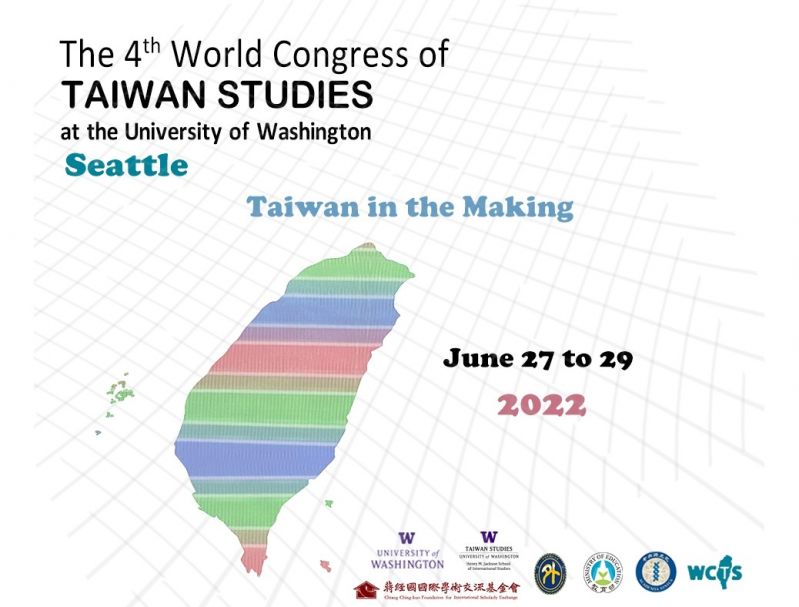4th World Congress of Taiwan Studies kicks off in US
2022/06/29
The fourth World Congress of Taiwan Studies kicked off June 27 in the U.S. city of Seattle, spotlighting government efforts to enhance the visibility of Taiwan studies while raising the country’s profile in the global community.
Co-hosted by Academia Sinica—Taiwan’s foremost research institution—and the University of Washington, the three-day event involved 88 presenters from countries including Australia, Austria, Canada, France, Singapore, the Czech Republic, the U.K. and the U.S.
The congress, themed “Taiwan in the Making,” consisted of one keynote speech, two plenary sessions, three roundtables and 18 parallel sessions. Topics spanned economics, history, literature, religion, democracy and politics, environmental change, gender issues, indigenous studies, visual arts, and trending issues such as disinformation and the country’s response to COVID-19.
Highlights of the event included a keynote speech titled “From Theorizing Taiwan to Taiwan-Theories Making” delivered by AS Adjunct Research Fellow Hsiao Hsin-huang and a roundtable on “Launching the Encyclopedia of Taiwan Studies” attended by Uri Tadmor, publishing director of Brill Academic Publishers; Hsiao; the encyclopedia’s editor-in-chief; and other deputy editors.
According to AS, this year’s edition is the first WCTS to be held in the U.S. The event provides a platform for scholars to share research on Taiwan and aims to further enhance international and interdisciplinary collaboration in related fields, the research institution added.
Launched by AS in Taipei in 2012, WCTS was co-hosted by the School of Oriental and African Studies at the U.K.’s University of London in 2015 before returning to Taiwan for the third edition in 2018.
WCTS serves as a complement to the Ministry of Education’s campaign to promote the academic discipline under its Taiwan Studies Project, the AS said, adding that over 40 research endeavors have been conducted at more than 20 universities in 15 countries worldwide since the program’s creation in 2000.
Source: Taiwan Today (https://taiwantoday.tw/index.php)












